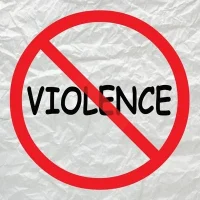Deadline: 4-May-23
UN Women is looking to partner with an NGO to support the implementation of 2 sectoral plans at the governorate level for the Governorates of Ninewa and Thi Qar.
These localized plans have been designed and endorsed in collaboration with national gender machineries and relevant governmental and civil society actors to ensure commitment towards the effective implementation of the second Iraqi National Action plan (INAP II) within each governorate. The localized plans consists of baseline data, activities, indicators and budgets linked to the NAPII strategic pillars (Participation, Protection and Prevention), objectives and outcomes.
UN Women seeks to continue providing technical support in the implementation of INAP II (2021-2024) in Iraq to ensure that the needs and priorities of women and girls affected by conflict are met and addressed. It aims to support the implementation of INAP II by governmental and non-governmental actors ensuring full collaboration and participation of civil society to enhance women’s protection and participation in conflict prevention and resolution, and post-conflict state building.
This proposal aims at supporting implementation of the INAPII at governorate level through localised plans for the governorates of ThiQar and Ninewa. These plans are pilot interventions which have been developed by the Women Empowerment Directorates at the governorate council in close coordination with UNWomen and in collaboration with civil society actors. They have been endorsed in collaboration with national gender machineries and relevant governmental and civil society actors. They serve to ensure the effective implementation and monitoring of the second Iraqi National Action plan (INAP II) at governorate level.
Pillar
Participation
- Objective (1): The active participation of women in achieving and sustaining peace.
- Women possess effective skills and abilities in negotiations and peacebuilding.
- A political and societal environment that supports women’s participation in peacebuilding and peacekeeping
- Women are represented and influential in leadership positions within the security sectors and justice systems.
- Consulting with human rights organizations and organizations concerned with women’s issues, to participate in anti-terrorism initiatives.
- Objective (2): Integrating women in relief efforts and reconstruction stages on both the national and local levels.
- Involving clan leaders, clerics, and civil society to prevent crimes of sexual violence and facilitate the reintegration of survivors
Protection
- Objective (1): Ensuring the protection of women and girls, especially in the camps, sites of displacement, and areas of return.
- Clear and effective formal mechanisms and procedures for the protection of women and girls
- Women and girls are empowered to use and benefit from protection mechanisms, especially reporting.
- Women and girls are empowered to use and benefit from protection mechanisms, especially reporting.
- Completion of legislation that provides shelter for groups at risk, including survivors of sexual violence.
Prevention
- Objective (1): Create a safe environment for women and girls and a supportive society based on coexistence and the rejection of violence.
- Building community capacities of aware individuals who are able to spread the concepts of peace and community cohesion.
- Inclusion of gender in early warning systems to prevent conflict-related violence in societies
- Provide support to feminist human rights organizations, and conduct regular consultations on policy and law reform and service provision
- Objective (3): Increasing the resilience of women affected by conflict through livelihood opportunities and access to services in their communities.
- Facilitating the economic participation of women in areas that witnessed conflict and creating a suitable work environment for them.
- Expanding economic empowerment and livelihood programs.
Funding Information
- The budget range for this proposal should be [$220,000- $250,000].
Competencies
- Technical/functional competencies required
- In the selection of partners, the following competencies will be considered:
- Soundness of technical competency described in the approach to the project as described in the Terms of Reference for the Call for Proposals, to be demonstrated by a track record of successful programmatic interventions
- Capacity to deliver expected results: governance and management competency, and financial and administrative competency, demonstrated by previous partnerships with UN Women or other donor organisations.
- Relevance of the mandate and the role of the organization to implement expected results and to contribute to the sustainability of said results, demonstrated by expertise in gender-related work and community outreach
- Other competencies, which while not required, can be an asset for the performance of services
For more information, visit UN Women.









































